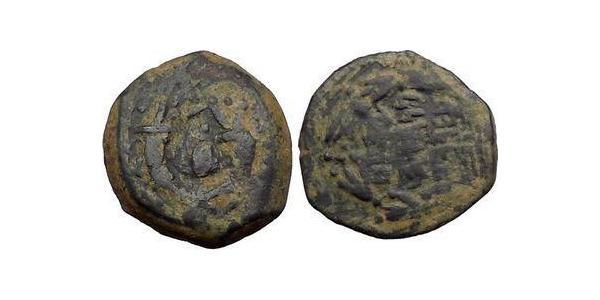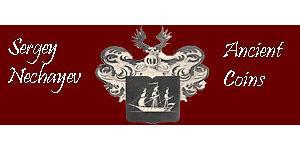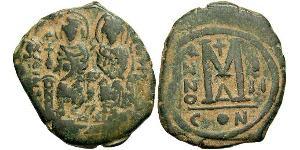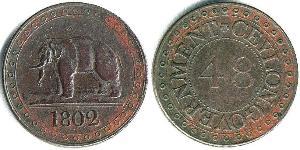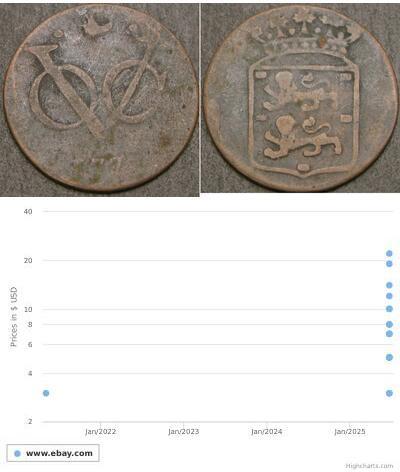[ 4326] John Hyrcanus I (Yehohanan) King of Judaea 135-104 B.C. Bronze 'Prutah' (16 mm, 2.62 gm.) Jerusalem Reference: Hendin 452. Hebrew inscription (Yehohanan the High Priest and the Council of the Jews) surrounded by wreath. Double cornucopia adorned with ribbons; pomegranate between horns. AJC I, Group K. Provided with certificate of authenticity. CERTIFIED AUTHENTIC by Sergey Nechayev, PhD - Numismatic Expert John Hyrcanus (Yohanan Girhan; Yohanan Hyrcanus – יוחנן הורקנוס, Ιωάννης Υρκανός) was a Hasmonean (Maccabeean) leader of the 2nd century BCE (born 164, reigned from 134 until his death in 104 BCE). Josephus explains in The Jewish War that John was also known as "Hyrcanus", but does not explain the reason behind this name. The only other primary source, the Books of the Maccabees, never used this name with respect to John, with the single reference to Hyrcanus in 2 Maccabees3:11[1] referring to a man to whom some of the money in the Temple belonged during the c.178 BCE visit of Heliodorus. The reason for the name is disputed amongst biblical scholars, with a variety of reasons proposed: · Familial origin in the region of Hyrcania on the Caspian Sea[2] · A Greek regnal name, which would have represented closer ties with the Hellenistic culture against which the Maccabees had revolted under Seleucid rule. However, the region of Hyrcania had been conquered by Mithridates I of Parthia in 141–139 BCE · Given the name by the Seleucids after he fought in the region alongside Antiochus VII Sidetes against Phraates II of Parthia in 130–129 BCE, a campaign which resulted in the release of Antiochus' brother Demetrius II Nicator from captivity in Hyrcania He was the son of Simon Maccabaeus and hence the nephew of Judas Maccabaeus, Jonathan Maccabaeus and their siblings, whose story is told in the deuterocanonical books of 1 Maccabees and 2 Maccabees, in the Talmud, and in Josephus. John was not present at a banquet at which his father and his two brothers were murdered, purportedly by his brother-in-law, Ptolemy, son of Abubus. He attained to his father's former offices, that of high priest and national leader (but not king).[3] Josephus said that John Hyrcanus had five sons but only named four in his histories--Judah Aristobulus I, Antigonus I, Alexander Jannai, and Absalom. During the first year of Hyrcanus’ reign, he faced the most serious challenge to independent Judean rule from the Seleucid Empire. Antiochus VII Sidetes marched into Judea, pillaged the countryside and laid a year long siege on Jerusalem. The prolonged siege caused Hyrcanus to remove any Judean from the city who could not assist with the defense effort (Antiquities 13.240). These refugees were not allowed to pass through Antiochus’ lines. Therefore, these Judeans were literally trapped in the middle of a chaotic siege. With a humanitarian crisis on his hands, Hyrcanus re-admitted his estranged Jerusalemites when the festival of Sukkot arrived. Afterwards, due to massive food shortages in Jerusalem, Hyrcanus negotiated a truce with Antiochus.[4] The terms of the truce consisted of three thousand talents of silver as payment for Antiochus, breaking down the walls of Jerusalem, Judean participation in the Seleucid war against the Parthians, and once again Judean recognition of Seleucid control (Antiquities 13.245). These terms were a harsh blow to a young ruler. Furthermore, Hyrcanus needed to loot the tomb of David to pay the 3000 talents (The Wars of the Jews I 2:5). The repercussions of the Seleucid siege were initially a difficult set-back for Hyrcanus. Judea faced tough economic times after the countryside was plundered and Jerusalem was under siege. Economic struggles were greatly magnified by taxes to the Seleucids enforced by Antiochus. Furthermore, Hyrcanus was forced to accompany Antiochus on his eastern campaign in 130 BCE. Hyrcanus probably would have functioned as the military commander of a Jewi ...
читати далі

|
Добавив:
anonymous 2015-08-18 |
Similar Coin Groups
2025-05-27
- Історичні ціни на монету
2025-05-24
- Історичні ціни на монету
Можливо, Вас зацікавить...

